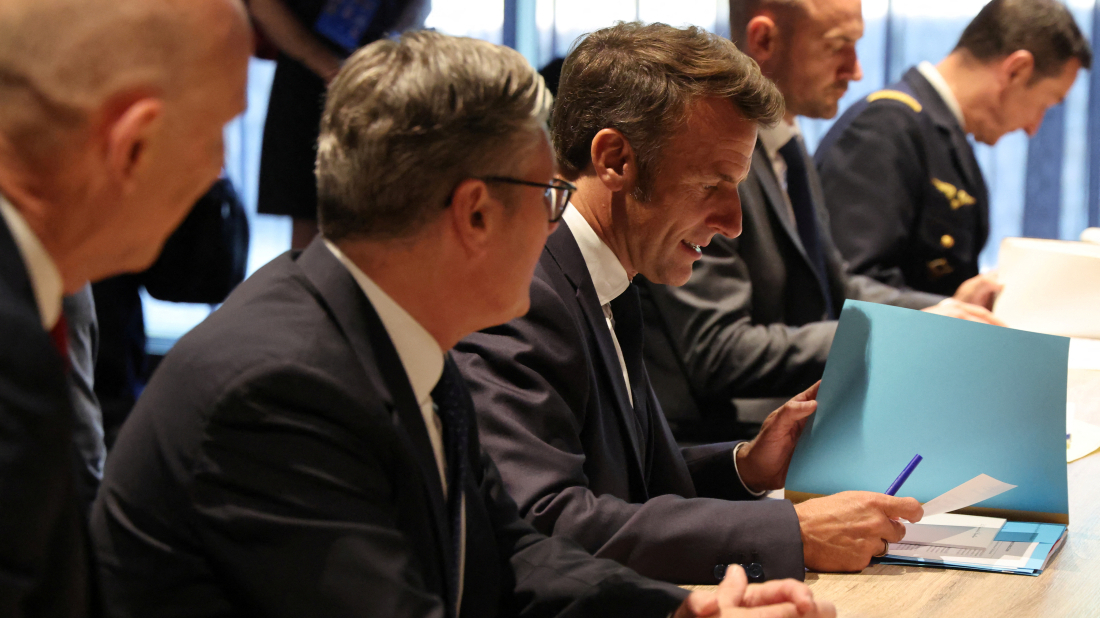Russian grain transits Azerbaijan en route to Armenia
A freight train carrying with Russian grain has departed from Bilajari station in Azerbaijan, heading to Armenia via transit routes through Georgia....

France, Germany and Britain have warned they are prepared to reinstate United Nations sanctions on Iran if it does not return to negotiations over its nuclear programme, according to a letter sent to the U.N. on Tuesday.
The foreign ministers of the so-called E3 group raised the prospect of invoking the “snapback” mechanism unless Tehran engages before the end of August, according to a letter shared by the French foreign ministry, confirming details first reported by the Financial Times and Le Monde.
“We have made it clear that if Iran is not willing to reach a diplomatic solution before the end of August 2025, or does not seize the opportunity of an extension, E3 are prepared to trigger the snapback mechanism,” the ministers wrote.
The letter added that the E3 had offered a limited extension to allow for direct negotiations between the United States and Iran, but said Tehran had so far left the proposal unanswered.
The three European powers, alongside China and Russia, remain parties to the 2015 nuclear agreement that lifted sanctions on Iran in exchange for curbs on its nuclear activity. The United States withdrew from the accord in 2018.
The letter described last month’s meeting in Istanbul with Iranian officials as “serious, frank and detailed”, the first face-to-face talks since Israeli and U.S. strikes on Iran’s nuclear sites in June.
Iranian lawmaker Manouchehr Mottaki, who served as foreign minister from 2005 to 2010, said parliament “has its finger on the trigger” to withdraw from the nuclear Non-Proliferation Treaty (NPT) if sanctions are reimposed through the snapback process.
Speaking to Iran’s semi-official Defa Press, Mottaki said lawmakers would approve a bill to leave the 2015 deal within 24 hours of such a move.
Tehran previously signalled during its 12-day conflict with Israel in June that it was preparing legislation to exit the NPT, which Iran ratified in 1970. The treaty allows states to pursue civilian nuclear energy while renouncing nuclear weapons and cooperating with the U.N. International Atomic Energy Agency (IAEA).
Catherine O’Hara, the celebrated Canadian actress and comedy legend, has died at the age of 71, her publicist confirmed on Friday. She passed away at her home in Los Angeles following a brief illness.
The U.S. Department of Justice on Friday made public more than three million pages of documents on Jeffrey Epstein, the late financier and convicted sex offender, including investigative records referencing Donald Trump, tech mogul Elon Musk and Britain’s former Duke of York, Prince Andrew.
The United Nations faces the risk of “imminent financial collapse” because of unpaid contributions, including substantial arrears from the United States, Secretary-General Antonio Guterres has warned.
Vladimir Putin said Russia earned more than $15 billion from defence exports in 2025 and fulfilled all military-technical contracts despite what he described as growing pressure from Western countries.
Explosions shook parts of southern Lebanon on Friday night as Israeli strikes rippled across the Zahrani district, with the blasts travelling toward the coastal city of Sidon.
Israel has reopened Gaza’s Rafah border crossing with Egypt in what Israeli media described as a “pilot operation,” marking the first opening of the crossing in two years.
U.S. President Donald Trump said on Saturday that the United States has begun negotiations with European leaders over Greenland and that an agreement is already taking shape.
Russian Security Council Secretary Sergei Shoigu has arrived in China for an official visit, where he is due to meet Chinese Foreign Minister Wang Yi to discuss international and regional security issues, Russian state media reported on Sunday.
U.S. President Donald Trump said Washington may be able to reach a deal with Cuba, days after he threatened tariffs on any country supplying the island with oil.
Xi Jinping praised China–Algeria co-operation on Saturday following the successful launch of an Algerian remote sensing satellite from northwest China, calling it another milestone in bilateral space ties.
You can download the AnewZ application from Play Store and the App Store.

What is your opinion on this topic?
Leave the first comment